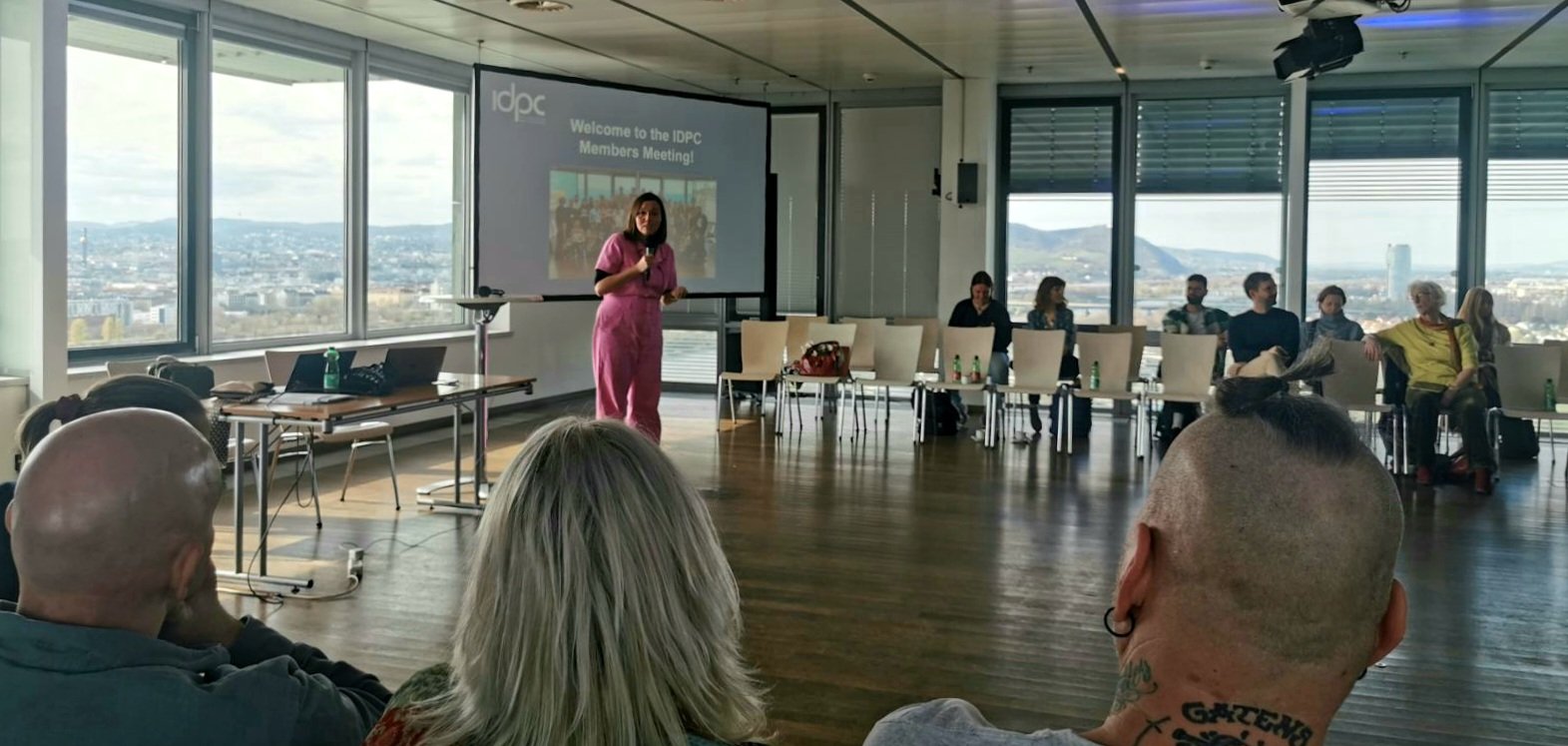The 67th session of the United Nations Commission on Narcotic Drugs (CND) was held from 14 to 22 March in Vienna. The programme included a high-level segment (14-15 March), including the mid-term review of the 2019 Ministerial Declaration and the ordinary session (18-22 March). It was the largest ever meeting of the Commission, with 140 Member States represented, as well as representatives from 18 intergovernmental organizations, 141 non-governmental organizations and 9 United Nations bodies. In total, the record with more than 2.500 people in attendance, including 600 civil society representatives from a wide range of organisations. Many more were able to follow the proceedings on UN Web TV, both in real time and on demand.
A central element of the high-level segment has been the analysis of progress on 11 specific challenges already identified in the 2019 Ministerial Declaration. One of the 11 challenges identified is the increase in drug-related deaths due to lack of treatment and health services.
Civil society organisations from all around the World contributed with the Global Civil Society Report. DPNSEE and our member organisations was also involved in this process.
The most interesting moments of this event was the intervention in person of Mr. Volker Türk, United Nations High Commissioner for Human Rights (for the first time!), stating that “After decades of following a largely punitive approach, we can see this simply is not working. Not by any metric”, and the joint statement calling for the reform of the international drug control system, initiated by a coalition of 60 countries led by Colombia.

During the ordinary session, only four resolutions were proposed, discussed (very slow and in details) and finally adopted.
The CND 67th session culminated in a historical day on Friday 22nd March, as member states voted on resolutions for the first time in modern history, and finally included the words “harm reduction”. The overdose prevention resolution, proposed by USA and driven by the appalling human toll of a domestic overdose epidemic, recognies harm reduction for the first time as an important part of an effective public health response. It represents a landmark in political commitment to a rebalancing of drug policy towards a public health approach.
Previously, the CND’s dedication to the so-called “Vienna spirit” (whereby all resolutions and policy documents are agreed by consensus) had allowed certain member states to block progressive language or anything that they did not like. Things have changed thanks to the pressure from civil society and the increased presence of human rightsand health mechanisms in Vienna.
More about this historic moment is available in an IDPC blog post following this link>>>.
DPNSEE President Nebojša Djurasović, Board member Marios Atzemis and Executive Director Milutin Milošević participated in the CND 67th session. They firstly joined the civil society events on Sunday 17 organised by IDPC.
The side event on decriminalisation, hosted by DPNSEE, was one of 174 side events – a record number for the CND. The majority were hosted by, or involved, civil society organisations. Our event was fully appreciated by many and mentioned at later events and in corridors.
The CND is an opportunity to organize meetings outside the formal sessions. DPNSEE participated in the VNGOC annual meeting, a CSFD meeting with representatives of the EU delegation, several side events organised by our colleagues and partners, individual meetings with EMCDDA Director, UNODC HIV prevention department, national drug coordinators from Bosnia Herzegovina, Croatia, Greece and Serbia, missions of Montenegro and Serbia to OSCE, Rome Consensus 2.0, Trimbos Institute andd much more.







 At this side event, we presented the scientific and political background for such policy changes and models of decriminalization that may be used, using
At this side event, we presented the scientific and political background for such policy changes and models of decriminalization that may be used, using 






 The
The 
